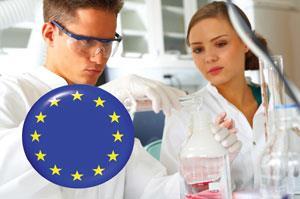After three long years, negotiations about Reach are finally over
European Union negotiators announced on 1 December that they had overcome the final hurdles that were holding up new legislation to control the use of chemicals.

The breakthrough in late-night discussions between legislators and ministerial officials cleared the way for an EU-wide regulatory regime, known as Reach, to come into force in June 2007. The compromises were approved by the European Parliament in a vote on 13 December, and signed off on 18 December.
Making a substitution
Reach (registration, evaluation, authorisation and restriction of chemicals) breaks new ground by reversing the burden of proof, requiring industry to demonstrate that substances are acceptably safe, and by introducing systematic screening of thousands of chemicals in everyday use.
A crucial part of the final compromise deal depends on the ’substitution principle’ - the extent to which the chemicals industry and downstream users should be pressured to discontinue use of hazardous substances and switch to safer alternatives.
In effect, the deal broadly accepts that Europe’s ?265 billion chemicals industry can continue to use between 1500 and 2000 ’substances of high concern’, provided that processes are ’adequately controlled’. Many members of the European Parliament (MEPs) had wanted substitution to be mandatory, but this was opposed by the Netherlands, Poland, and particularly Germany, where a powerful lobbying exercise was led by the chemicals giant BASF. The revised Reach regulation now requires producers and importers to present an analysis of possible alternatives to hazardous substances. If alternatives are available, the applicants must produce ’substitution plans’ showing how they can phase out the hazardous substance. If alternatives are not available, the applicants must present an R&D programme aimed at finding alternatives.
The European Environmental Bureau (EEB) - an alliance of NGOs including Greenpeace and Friends of the Earth - attacked the deal, on the grounds that substitution plans will only be submitted when the applicant company itself identifies a safer alternative. This offers ’an incentive for chemicals companies to continue ignoring safer alternatives,’ according to an EEB statement.
But Dutch MEP Ria Oomen-Ruijten, lead negotiator for the European People’s Party, rejected claims that substitution plans will be unenforceable, and said that the compromise will mean ’a further reduction of useless testing’, while the sharing of data on animal testing will help avoid unnecessary duplication.
Fight to the Finnish
The deal comes at the end of Finland’s six-month tenure of the rotating presidency of the Union. As well as winning plaudits for brokering the deal on Reach, Finland will also gain the kudos - and economic benefits - of hosting the European Chemicals Agency (ECHA) in Helsinki. ECHA will handle registration applications and safety data for around 30 000 widely used substances as Reach is phased in over the next 11 years.
Pending final confirmation, it appears that around 17 000 existing substances produced in small quantities will be either exempted or subject to less stringent safety data requirements. The compromises go a long way toward meeting chemicals industry concerns, while environmental campaigners called it a ’sell-out to the intense lobbying of the German chemicals industry’. Oomen-Ruijten countered that the EU must strike a balance between the interests of health and environmental safety, and those of a vital industrial sector with a workforce of 1.3 million.
Reach will replace around 40 directives enacted over the past three decades, and aims to offer easier access to information about chemicals.
Currently, panels of experts advise the European Commission on whether certain substances should be restricted. But only 3000 substances have been vetted under current procedures, accounting for less than one per cent by volume of chemicals used in industry.
Industry had also been worried about how commercially-sensitive data, necessary for some applications, would be handled by ECHA. A recommendation that the data should remain confidential for six years, rather than three, was hailed as ’good news for manufacturers’ by Oomen-Ruijten. ’This will prevent years of expensive research becoming worthless,’ she said.
Global influence
Reach is one of the largest EU legal texts ever drafted, running to more than 1000 pages, and its influence will be felt far beyond Europe. As major exporters to the EU, American chemicals firms have taken a close interest in Reach’s progress, not only because of the compliance issues involved but also because Reach rules may influence federal policy at home, or spark transatlantic disputes at the World Trade Organisation.
As British MEP Chris Davies, negotiator for the parliament’s Liberal group, claimed: ’Europe’s model for the control of chemicals is set to become the standard for the world.’
Arthur Rogers






No comments yet